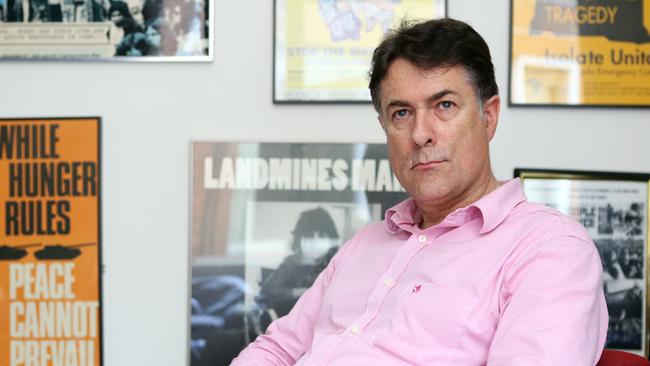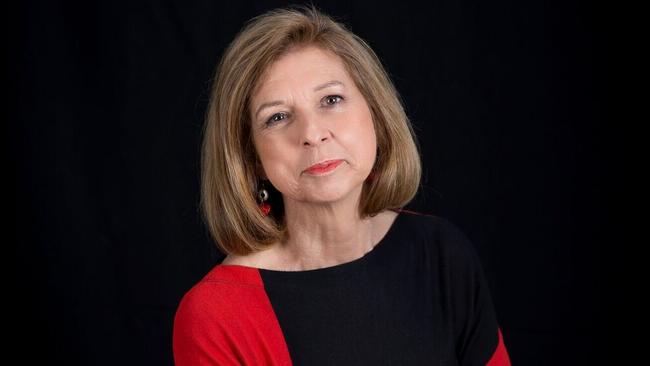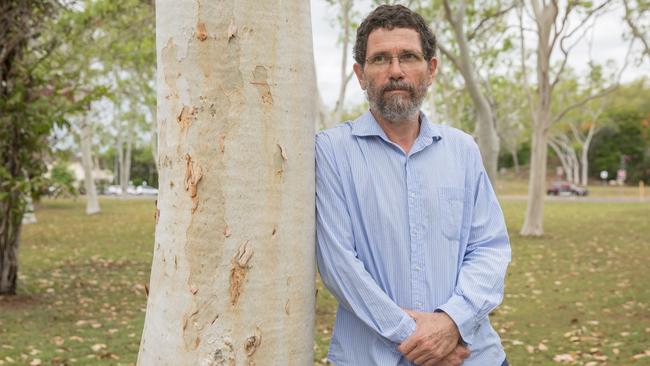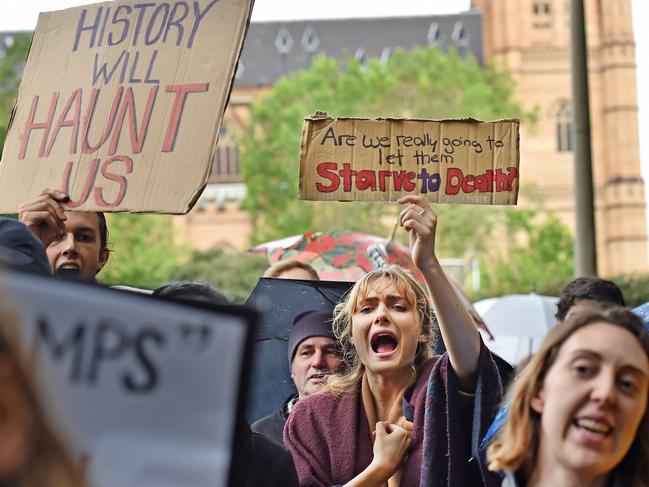If debate can’t flourish at university, where can it?
If we’re to have any hope of making campuses a place where people can be intellectually free again, it’s imperative that we tackle the debate around free speech once and for all, writes Caroline Marcus.
Something insidious is happening on our university campuses.
They’ve become places where it’s too dangerous to debate controversial ideas, where infantilised students require safe spaces and trigger warnings to insulate themselves from viewpoints that they may find uncomfortable and where speakers challenging the status quo are abused and shouted down.
All this at a time when universities risk slipping into irrelevance, with an Ernst & Young report last year finding two in five degrees would soon become obsolete and traditional undergraduate and postgraduate degrees could disappear within a decade, with bosses and students increasingly reporting that courses don’t align with industry requirements.

One of the worst offenders when it comes to hostility towards freedoms and an obsession with identity politics has been the prestigious University of Sydney.
MORE FROM RENDEZVIEW: Mollycoddling at university is beyond parody
Back in 2015, anti-Israel protesters stormed a talk by retired British colonel Richard Kemp, a defender of the Israeli Defence Forces.
The action was led — shamefully — by one of the university’s own associate professors, Jake Lynch.

The agitators stood on chairs, pushed students and screamed at those who took issue with their behaviour, with Lynch at one point waving money in the face of a Jewish student.
During the same-sex marriage debate in 2017, gay marriage activists viciously attacked students at the same university who were peacefully manning an “It’s OK to vote ‘no’” stall.
One Catholic student was kicked in the shins as he resisted attempts to give up his sign, while another was smeared with hummus, all while the ‘Yes’ campaigners screamed abuse at them, calling them “bigots” and “neo-Nazis”.
Last year, the riot squad was called in to remove violent feminists disrupting a talk by sex therapist and author Bettina Arndt, all because they objected to her calling out what she says is a “fake rape crisis” on campuses.
MORE FROM RENDEZVIEW: Is sending your kid to uni really worth it?
A nine-month investigation ordered by the university resulted in disciplinary action against one student organiser, but other than that, it cleared the students of misconduct or breaching the university’s guidelines on freedom of expression.
And a group of students are currently waging a campaign to tear down the statues of Australian explorer William Wentworth, claiming he was a “known racist” and a “fraud”.
Now, even history has become too triggering for our coddled students.

Yet the university’s vice-chancellor Spence had the temerity to tell Nine newspapers last week that “the conservatives are as bad as the progressives and the progressives are as bad as the conservatives” when it comes to being unable to hold civil debates.
Excuse me? When was the last time you heard of a conservative student trying to shut down a talk on any number of fashionable Leftist causes?
But it’s not just the University of Sydney.
Last year, the University of Western Australia cancelled a talk by US paediatrician Quentin Van Meter, who argues using puberty blockers for children with gender dysphoria is akin to child abuse, citing safety concerns.
MORE FROM CAROLINE MARCUS: Gender pay gap policy is based on lies
That same year, James Cook University in North Queensland sacked physics professor Peter Ridd for the crime of questioning the quality of science about coral bleaching of the Great Barrier Reef.
In April, the Federal Circuit Court ruled that his sacking was unlawful and that JCU had “not understood the whole concept of intellectual freedom”.

And I revealed in 2017 how a University of New South Wales lecturer had warned mathematics students not to use the word “marriage” when referring to Phillip Hall’s Marriage Theorem because of its “homophobic implications”.
It was the Arndt incident that, in part, sparked Education Minister Dan Tehan’s decision to order a review by former High Court chief justice Robert French, which published its findings in April.
MORE FROM RENDEZVIEW: Unis are peddling PC nonsense instead of teaching
Some of those who would reduce this significant issue to simply being about “culture wars” were quick to seize on a particular line in the report, in which French said claims of a freedom of speech “crisis” on Australian campuses had not been substantiated.
They overlook the fact that French went on to say that a range of diverse and broadly framed institutional rules, codes and policies are “capable of eroding the fundamental freedom of speech and that freedom of speech which is an essential element of academic freedom.”
The key recommendation of the report was that protection of freedoms be strengthened and it drew up a model code, which Tehan has urged all universities to adopt.

French, to his credit, put his money where his mouth is; the University of Western Australia, where he is chancellor, recently finalised a statement making clear its expectation students must be open to a free exchange of ideas, even those that may make them uncomfortable.
UWA is the first university to seriously respond to the French review, but the statement is not a new concept.
In 2014, the University of Chicago issued what is now known as the Chicago Statement, forbidding university members from obstructing or interfering with the freedom of others “to express views they reject or even loathe” and committing to protecting free debate.
As of last month, 63 US institutions or faculty bodies, including the Ivy League university Princeton, had adopted or endorsed the statement, according to the Foundation for Individual Rights in Education.
We need more Australian universities to show some chutzpah and do the same — whether we call it the Chicago Statement, the UWA Statement or otherwise — if we are to have any hope of making campuses a place where our young people can be intellectually free again, particularly at a time when people are wondering if going to uni is even worth it.
Caroline Marcus is a senior reporter at Sky News. @carolinemarcus


